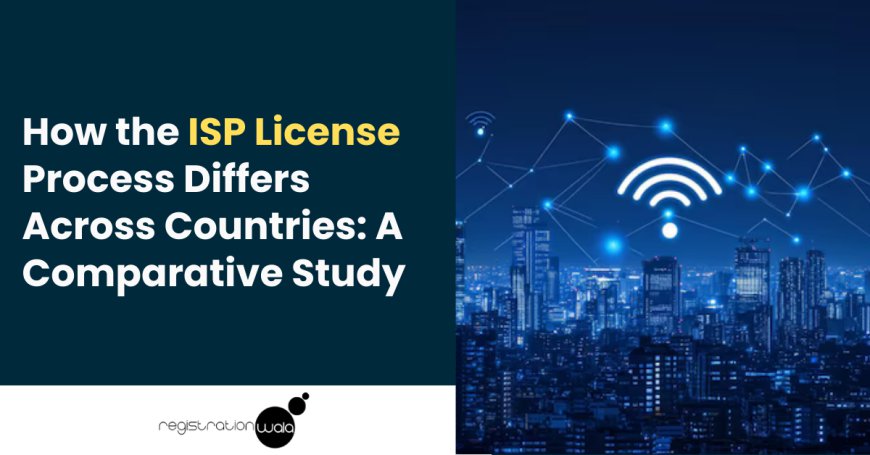How the ISP License Process Differs Across Countries: A Comparative Study
In the globalized digital age, the process of obtaining an Internet Service Provider (ISP) license can vary significantly from one country to another. Understanding these differences is crucial for businesses aiming to expand their internet services

In the globalized digital age, the process of obtaining an Internet Service Provider (ISP) license can vary significantly from one country to another. Understanding these differences is crucial for businesses aiming to expand their internet services internationally. This comparative study explores the varying requirements and procedures for acquiring an ISP license across different countries.
Regulatory Frameworks for ISP Licenses
United States: A Federal vs. State Approach
In the United States, the process of obtaining an ISP license is influenced by both federal and state regulations. The Federal Communications Commission (FCC) oversees national policies and ensures compliance with federal laws. However, individual states may have additional requirements or procedures that vary depending on local regulations. This dual-layered approach necessitates navigating both federal and state jurisdictions to secure an ISP license.
European Union: Harmonized Regulations with National Variations
The European Union has worked towards harmonizing the ISP licensing process across member states. The European Electronic Communications Code (EECC) provides a framework for licensing and regulation, aiming to create a single market for digital services. Despite this, each EU member state retains some discretion in implementing these regulations, leading to variations in the application process and compliance requirements.
India: A Regulated and Competitive Market
In India, the ISP licensing process is managed by the Telecom Regulatory Authority of India (TRAI) and the Department of Telecommunications (DoT). The process involves several stages, including obtaining a Unified License (UL) and meeting specific technical and financial criteria. India's regulatory environment is designed to foster competition while ensuring that service providers adhere to stringent quality and service standards.
Key Differences in Licensing Procedures
Application and Approval Timelines
One of the notable differences in the ISP license process across countries is the application and approval timelines. In some countries, such as the United States, the process can be lengthy due to the need to comply with both federal and state regulations. In contrast, other countries, like those in the EU, may have more streamlined processes thanks to standardized regulations.
Financial and Technical Requirements
Financial and technical requirements for obtaining an ISP license also vary widely. For example, in India, applicants must demonstrate substantial financial capacity and technical expertise to meet regulatory standards. Conversely, some countries may have less stringent financial requirements but impose more rigorous technical standards to ensure service quality.
Regulatory Oversight and Compliance
Regulatory oversight and compliance mechanisms differ across countries as well. The extent of regulatory scrutiny, frequency of audits, and enforcement actions can vary, impacting how ISP licenses are managed and monitored. For instance, while the FCC in the United States conducts regular reviews, other countries may have different oversight practices that affect how licenses are enforced.
Conclusion
Navigating the ISP license process can be complex due to the varying regulatory frameworks across countries. Understanding these differences is essential for businesses looking to expand their internet services globally. By comparing the procedures and requirements in different regions, companies can better prepare for the challenges and opportunities in securing an ISP license in a new market.
Know About: About Sarathi Parivahan Sewa Portal
